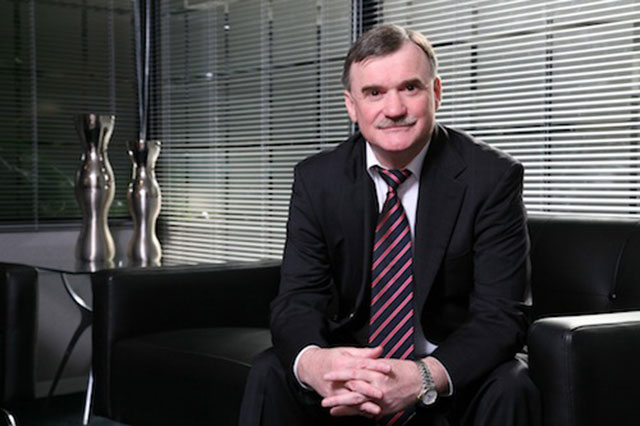
The CEO of Net1 UEPS Technologies, which has the contract to distribute South Africa’s R129bn in annual welfare payments, said he isn’t “remotely concerned” about the outcome of a court case that could stop deductions for services such as funeral insurance from state-funded grants to some of the country’s poorest people.
In May, the South African Social Security Agency (Sassa), which oversees the payment of welfare grants to more than 16m people, amended its rules to prevent what it said were illegal deductions for goods and services directly from grants ranging from funeral insurance to cellular airtime.
Net1 has challenged the amendments in court and CEO Serge Belamant said the case, and resultant appeals, will take so long that it won’t affect the company’s profitability. Black Sash Trust, an activist group, has filed a counter challenge demanding the government do more to protect grant recipients.
While the court case will determine the meaning of the law surrounding deductions “between you and me and a bar of soap, I don’t really care what it means”, Belamant said on a conference call on 26 August. “It’s not going to make any difference to how much money we’re going to make.”
The court case between Net1, associated companies and the government has drawn in activists who say the regulations allow financial services companies to take advantage of people who often don’t understand what they are agreeing to when they assent to deductions from their grants.
Net 1 claims that the amendments interfere with the rights of people to make their own financial decisions. The case will be heard in October.
Sassa declined to immediately comment.
During the earnings conference call, Belamant said should the judge rule against Net1, the company could ultimately benefit as it may spur the development of its own banking system, known as EasyPay.
The company has been advertising to grant beneficiaries the option to move over to the EasyPay system in order to continue having deductions made on the money they receive from the government.
“By the time of the court case in October and a decision is made in November there may be an appeal either by ourselves or Sassa, depending on who wins or who loses, this could take another year. It could go to the constitutional court of course.
“The final decision on that particular case might take a long long time,’’ Belamant said. During that time, “the status quo will remain and we will continue to advertise and to tell customers that if they want to ensure that they can continue to run their own affairs and make their own decisions rather than to be told what to do by government’’ they could open an EasyPay account. — (c) 2016 NewsCentral Media




